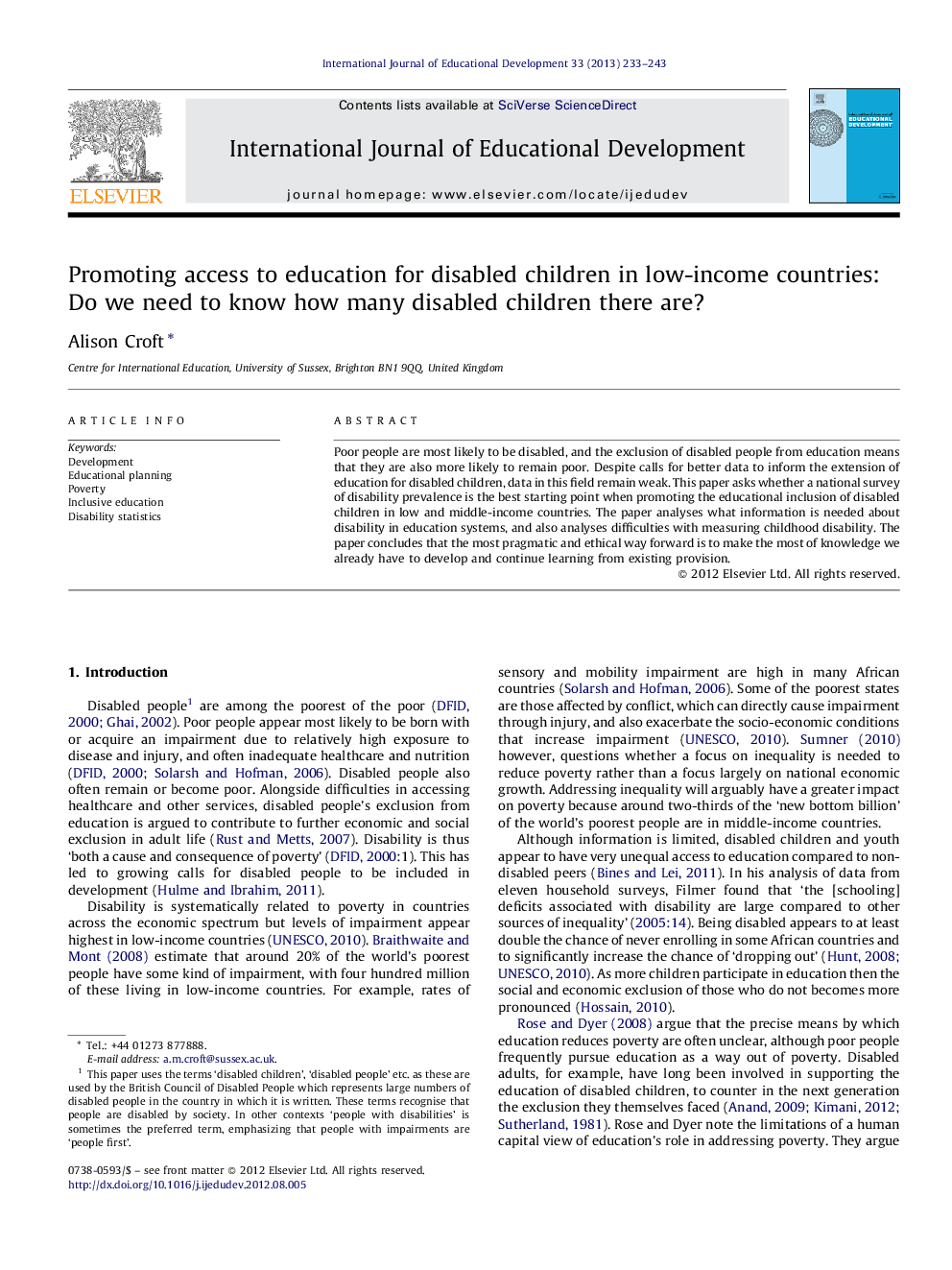| Article ID | Journal | Published Year | Pages | File Type |
|---|---|---|---|---|
| 356211 | International Journal of Educational Development | 2013 | 11 Pages |
Poor people are most likely to be disabled, and the exclusion of disabled people from education means that they are also more likely to remain poor. Despite calls for better data to inform the extension of education for disabled children, data in this field remain weak. This paper asks whether a national survey of disability prevalence is the best starting point when promoting the educational inclusion of disabled children in low and middle-income countries. The paper analyses what information is needed about disability in education systems, and also analyses difficulties with measuring childhood disability. The paper concludes that the most pragmatic and ethical way forward is to make the most of knowledge we already have to develop and continue learning from existing provision.
► The role of data in extending education to disabled children is analysed. ► National surveys of childhood disability face logistical and ethical difficulties. ► Service-based data collection is likely to be more accurate and cost-effective.
